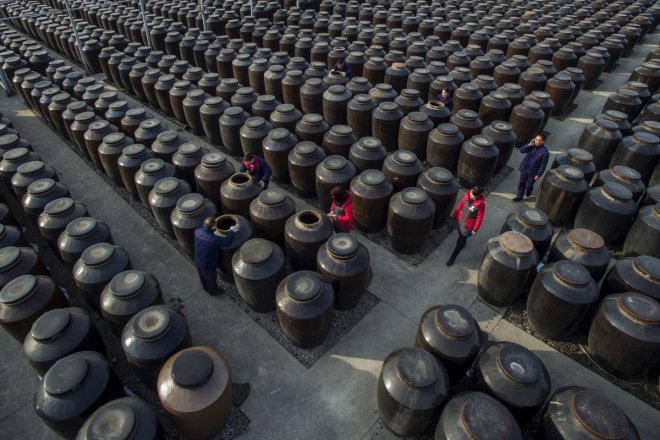
Activity in China's vast manufacturing sector likely grew for an eighth straight month in March as a surprise rebound in the property market added to a construction boom, boosting sales of building materials from steel to cement, a Reuters poll showed.
The official manufacturing Purchasing Managers' Index (PMI) is expected to stay at 51.6 in March, the same as in February which was the second-highest reading since July 2014, according to a median forecast of 31 economists in a Reuters poll.
While that is well above the 50.0 mark which separates expansion from contraction, over a dozen cities have announced fresh property cooling measures in recent weeks to slow home price rises, raising questions over how long the solid pace of growth can be sustained.
Home sales rebounded in the first two months of the year with an increase in new starts, defying previous government curbs to contain bubbly prices in big cities such as Beijing.
"Many projects started in March as it is usually the peak season," said Shen Jianguang, analyst at Mizuho Securities in Hong Kong.
Profits of Chinese industrial firms surged almost 32 percent in the first two months of 2017 -- the fastest pace in nearly 6 years -- as prices of commodities from coal to iron ore raced higher.
But iron ore futures prices in China have retreated in the past week, with high inventories adding to fears that supply is threatening to outpace demand.[IRONORE/]
Some China watchers think the wave of property tightening measures announced since late last year will eventually slow home sales and prices.
"The market will certainly freeze under the new measures. Sales may drop 90 percent," said Yi Xianrong, a former researcher at the Chinese Academy of Social Sciences - a state think tank - and now a professor at Qingdao university.
The outlook for China's manufacturing sector is also clouded by U.S. protectionist rhetoric that could hurt exports to its biggest trading destination, although no major U.S. measures have been announced.
The central bank has been cautious, bumping up money market and short- and medium-term interest rates several times this year by only modest amounts. But analysts said its tightening bias will eventually pass through to higher borrowing costs for Chinese companies.
The official PMI number will be released on March 31, along with the official services PMI.
The private Caixin/Markit PMI survey, which focuses more on small and mid-sized firms, will be published on April 1.








